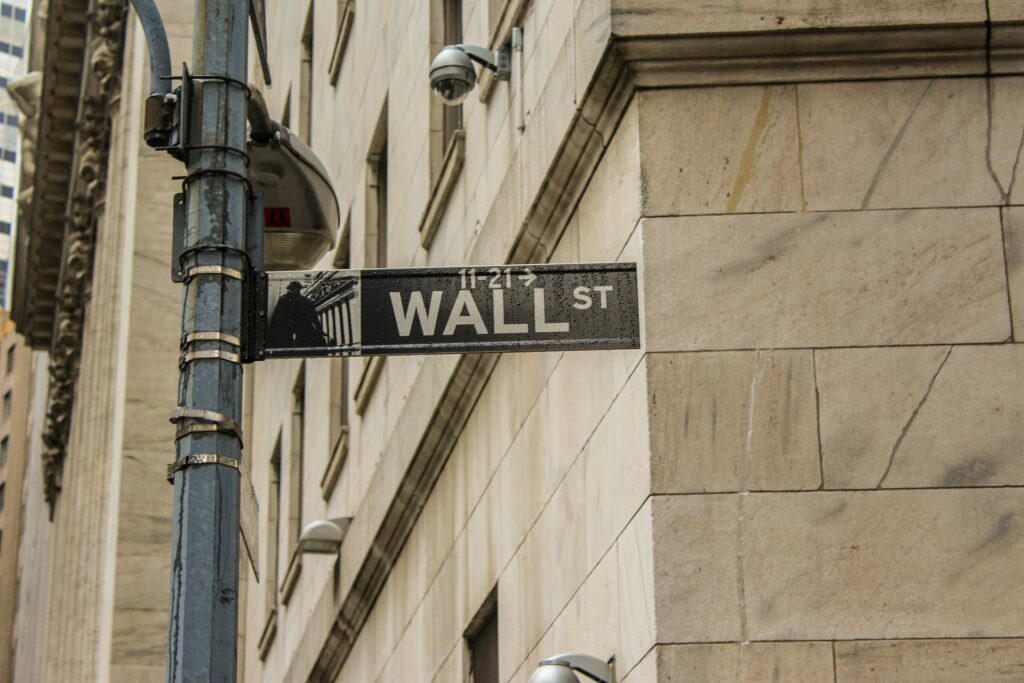This year is undoubtedly not an easy one for global investment companies, given the decline in markets that we have been witnessing for months. The fear of a recession, rising interest rates, and the Ukraine crisis have hammered both bonds and stocks this year, putting investors on the defensive and hurting corporations like BlackRock, the largest asset manager in the world.
Or, to be more precise, the second largest asset manager, after Vanguard, took the lead after its Q3 2022 numbers. BlackRock’s assets under management (AUM) fell 16% year on year to $7.96 trillion in the third quarter, as the stronger dollar reduced the value of investments in Europe and Asia. However, these latest changes cannot negate the fact that for years, BlackRock has been the undisputed master when it comes to managing other people’s money.
How big is actually BlackRock?
To give you a clearer idea of how much assets the Blackrock’s fund managers actually have in their portfolios, we will mention that it is about one third of the GDP of the United States for the year 2022. Or, as much as the economies of Germany, the UK, and France combined. Or, you might find it more interesting if we put the numbers in the context of corporations, so BlackRock’s AUM would be as much as the market capitalizations of Apple, Google, Amazon, and Facebook put together.
As a large publicly listed firm with a market capitalization of over $97.5 billion, it provides investing and technology services to both institutional and retail clients worldwide. In addition to Vanguard, BlackRock’s rivals include Edward Jones, Wellington Management, Charles Schwab, Morgan Stanley, and State Street.

How Blackrock makes money?
The firm offers a variety of funds and portfolios that invest in stocks, money market instruments, and fixed income.
BlackRock offers mutual funds, investments concentrating on retirement income and college savings, and exchange-traded funds (ETFs).
BlackRock was established in New York City in 1988 as an institutional asset manager specialized in risk management and fixed income.
Currently the firm works internationally with 70 offices in 30 countries and consumers in 100 countries. BlackRock generates the majority of its revenue through investment advising and administration fees. The firm assesses them over time and typically base them on specified percentages of AUM. This category includes fees associated with BlackRock’s stock, fixed income, multi-asset alternative, and cash management services. This category generated $3.53 billion in revenue in Q3 FY 2022, accounting for about 82% of total revenue.
History
The story of BlackRock begins with eight people in a single room: Larry Fink, Robert S. Kapito, Susan Wagner, Barbara Novick, Ben Golub, Hugh Frater, Ralph Schlosstein, and Keith Anderson founded the company. Their mission was to provide risk management asset management services to institutional clients.
Introduction of Aladdin
In 1999, BlackRock began to offer its proprietary technology, Aladdin, recognizing the opportunity to provide transparency, scalability, and innovation to risk management for the larger industry. This technology, which is fundamental to who they are as a company, is ingrained in everything they do, distinguishing them as an investment and risk manager.
The IPO and international expansion
On October 1st of the same year, BlackRock goes public on the New York Stock Exchange for $14 a share. Because of its strengthened partnerships with worldwide institutions, the business had $165 billion in assets under management by the end of 1999.
The firm founded BlackRock Solutions in 2000, with Aladdin serving as the foundation of the company. This marked the beginning of BlackRock’s role as a provider of technology.
In 2006, BlackRock purchases Merrill Lynch Investment Management, boosting its retail and worldwide footprint.
An advisory role amidst crisis
During the 2008 financial crisis, the Chairman of the Federal Reserve Bank of New York requests that BlackRock examine and appraise Bear Stearns’ mortgage-backed securities holdings. Two years later, BlackRock continues to play an important consulting role for institutions throughout the world attempting to manage the financial crisis.

The number one
In 2009, BlackRock acquired Barclay’s Global Investors (BGI), establishing itself as the world’s largest asset management firm with workers in 24 countries. With this purchase, BlackRock makes the unusual move of combining alpha and index strategies under one roof in order to present its clients with a broader range of options.
In 2012, BlackRock introduces iShares Core to give investors with comprehensive stock and bond market exposure at a low cost and tax-efficient basis.
Wealth management era begins
Given the evolving wealth management landscape, BlackRock focuses on providing financial advisers with portfolio development knowledge. This has been achieved by utilizing its wide platform and portfolio construction technologies. In 2016, Aladdin Wealth is sold to its first wealth management customer. The client benefited from the same data and risk capabilities as their own investing teams.
BlackRock opens its first AI (Artificial Intelligence) Lab in Palo Alto two years later to accelerate its use of artificial intelligence and related disciplines. Machine learning, data science, natural language processing – should improve outcomes and drive progress for investors, clients, and the firm.
Innovative solutions to retirement challenges
BlackRock expands its position in the retirement crisis by establishing the BlackRock Retirement Solutions Group in 2019. They developed this new effort to seek creative solutions to the most pressing retirement concerns, with two-thirds of the assets they manage relating to retirement.
Later, BlackRock purchases eFront, the world’s biggest provider of end-to-end alternative investment management software and solutions. The aim was to expedite its own objective to make alternatives less alternative and enable a whole portfolio approach.
Controversies
BlackRock CEO Larry Fink remarked in his 2018 annual letter to shareholders that other CEOs should be conscious of their effect on society. Anti-war groups reacted angrily to Fink’s comments, claiming that BlackRock, through its iShares U.S. Aerospace and Defense ETF, is the largest investor in weapon manufacturing. Anti-war activists demonstrated outside the annual BlackRock shareholders’ meeting in Manhattan, New York, in May 2018.
The company has also been chastised for its passivity on climate change and deforestation in the Amazon. BlackRock has been dubbed the world’s largest shadow bank due to its size and breadth of financial assets and activities. In 2020, U.S. Representatives Katie Porter and Jess “Chuy” Garca introduced legislation in the U.S. House aimed at reining in BlackRock and other so-called shadow banks. On March 4, 2021, U.S. Senator Elizabeth Warren labeled BlackRock as “too big to fail.”
BlackRock was under investigation for allegedly abusing its close connection with the Federal Reserve System during the COVID-19 pandemic response efforts. The New Republic reported in June 2020 that BlackRock was “having a very good epidemic”. The firm reportedly was portraying itself as “socially responsible while contributing to the climate disaster”.



